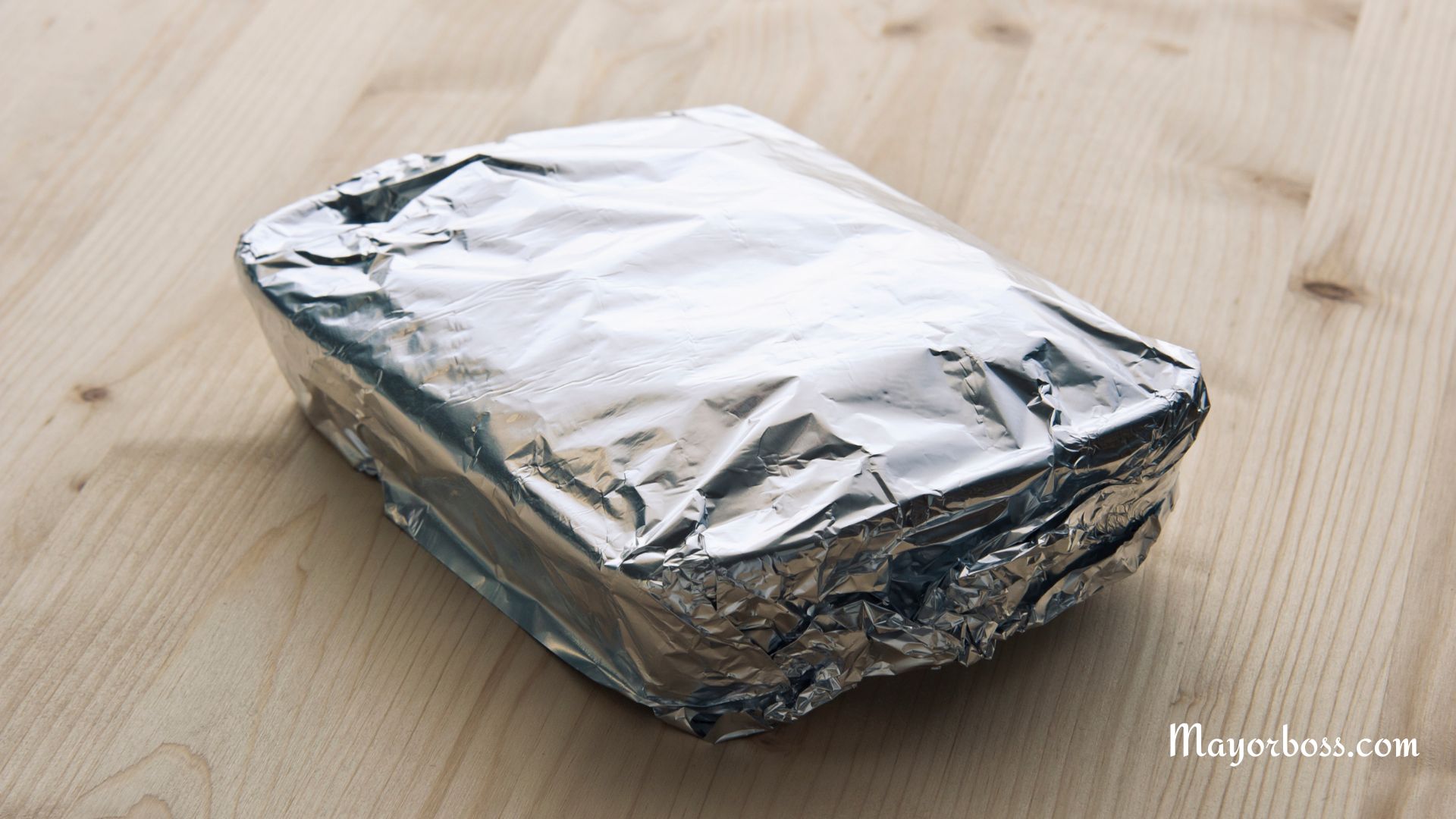Here’s Why You Shouldn’t Wrap Your Leftovers in Aluminum Foil
Wrapping your leftovers in aluminum foil might seem like a quick, convenient solution. It’s easy, right? Just wrap, refrigerate, and you’re done. However, what if I told you that this common practice might not be the best for your health or your food’s quality? This article explains the reasons why you might want to rethink using aluminum foil for storing leftovers.

The Air Issue: A Gateway for Bacteria
One of the primary concerns with using aluminum foil for food storage is its inability to seal the food completely. This exposure to air can be problematic. Why? Because bacteria, including those that cause foodborne illnesses like staph and Bacillus cereus, thrive in the presence of air. These bacteria can produce toxins that are not destroyed by high cooking temperatures. Therefore, using aluminum foil, which doesn’t completely seal your food from the air, could inadvertently invite these bacteria to flourish.
The Science of Safe Storage
To keep your leftovers safe, you need to store them correctly. This means using shallow, air-tight containers. Why shallow? Because it speeds up the cooling process, thereby reducing the time food spends in the “danger zone” – a temperature range where bacteria rapidly grow. Putting hot food directly into a container and then into the fridge can trap heat and extend the time it’s in this danger zone. On the other hand, airtight containers efficiently keep bacteria out, preserving your food’s freshness and safety.
Environmental and Health Considerations
Besides the immediate risk of bacterial growth, aluminum foil isn’t the most environmentally friendly or healthy option for food storage. Aluminum foil pans are great for their heat conductivity and are useful for baking and cooking, but they are often not reusable, contributing to environmental waste. Moreover, aluminum can react with acidic or alkaline foods, which might affect the food’s taste and lead to the degradation of the foil itself.
In contrast, clear food containers, often made of glass, food-grade silicone, or BPA-free plastics, offer several benefits. They are reusable, reducing waste, and many are microwave-safe, allowing for easy reheating. Their transparent nature makes it easy to identify food without opening the container, and their uniform shape allows for efficient space usage in the fridge or pantry.
Choosing the Right Container
When it comes to choosing the right container for your food, consider the type of food you’re storing. Clear containers are preferable for storing soups or liquids due to their sealing capabilities. On the other hand, aluminum pans may be more suitable for solid food items or baked goods, especially for short-term, disposable use.
Smarter Alternatives for Storing Leftovers
1. Glass Containers: The Clear Winner
Glass containers don’t leach chemicals, are microwave-safe, and they let you see your tasty leftovers at a glance. Plus, they’re reusable and recyclable.
2. Beeswax Wraps: A Natural Solution
An eco-friendly and aesthetically pleasing option, beeswax wraps are great for covering bowls or wrapping certain foods directly. They’re not suitable for all types of food, but they’re a step in the right direction.
3. Silicone Lids and Bags: Flexibility Meets Functionality
Silicone lids can stretch to fit over a variety of containers, making them a versatile addition to your kitchen. Silicone bags are also great for storing all sorts of leftovers and are a breeze to clean.
Conclusion
In summary, while aluminum foil might seem convenient for storing leftovers, its inability to properly seal food can lead to increased bacterial growth and potential health risks. For optimal food safety and quality, using shallow, airtight containers is a much better choice. Not only does this practice keep your food fresher and safer, but it also aligns better with environmental considerations. Next time you’re about to wrap that leftover pizza slice in foil, consider reaching for an airtight container instead. Your health, your taste buds, and the planet will thank you!
